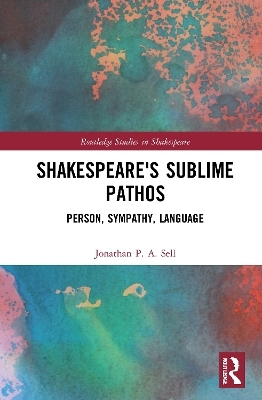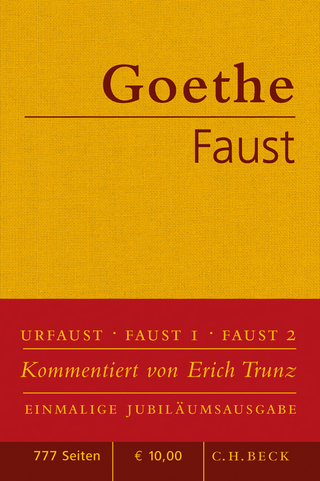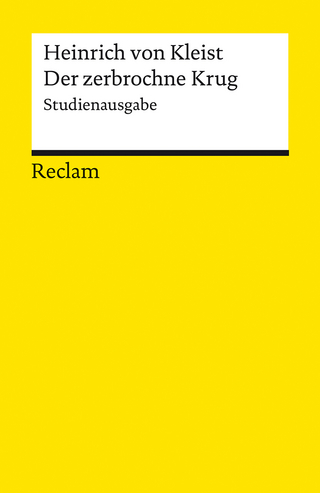
Shakespeare's Sublime Pathos
Routledge (Verlag)
978-1-032-01795-2 (ISBN)
Winner of the European Society for the Study of English Book Award 2024
Shakespeare’s Sublime Pathos: Person, Audience, Language breaks new ground in providing a sustained, demystifying treatment of its subject and looking for answers to basic questions regarding the creation, experience, aesthetics and philosophy of Shakespearean sublimity. More specifically, it explores how Shakespeare generates experiences of sublime pathos, for which audiences have been prepared by the sublime ethos described in the companion volume, Shakespeare’s Sublime Ethos. To do so, it examines Shakespeare’s model of mutualistic character, in which "entangled" language brokers a psychic communion between fictive persons and real-life audiences and readers. In the process, Sublime Critical platitudes regarding Shakespeare’s liberating ambiguity and invention of the human are challenged, while the sympathetic imagination is reinstated as the linchpin of the playwright’s sublime effects. As the argument develops, the Shakespearean sublime emerges as an emotional state of vulnerable exhilaration leading to an ethically uplifting openness towards others and an epistemologically bracing awareness of human unknowability. Taken together, Shakespeare’s Sublime Pathos and Shakespeare’s Sublime Ethos show how Shakespearean drama integrates matter and spirit on hierarchical planes of cognition and argue that, ultimately, his is an immanent sublimity of the here-and-now enfolding a transcendence which may be imagined, simulated or evoked, but never achieved.
Jonathan P. A. Sell is Professor of English Literature at the Universidad de Alcalá, Spain. He holds degrees from the universities of Oxford, London and Alcalá, and his main fields of research are early modern and contemporary literature. He has written numerous articles and several books, including Rhetoric and Wonder in English Travel Writing, 1560–1613 (2006), Allusion, Identity and Community (2012) and Conocer a Shakespeare (Getting to Know Shakespeare, (2012).
Introduction
Aims and "ethos"
Plan of the work
Chapter 1. The Conundrum of Character, the Sublime Mistook
Judith’s face
Ambiguity, realism, sublimity
Ambiguity, freedom, sublimity
Contemptus mundi
Chapter 2. Hollow Men
Liberal humanist character
Protean persons
The moral core
Freedom of choice?
Mutualistic character
Myriad minds
Chapter 3. Sympathetic Imagination
Sympathy and imagination
Psychology and phantasia
Passionate playgoing
Chapter 4. Language of Passion
Cause and effect
"Conceit deceitful"
Thought in progress
Botching words
Entangled, obscure, baroque
Chapter 5. The Mutualist’s Dividend
Going mad with Shakespeare
Transcendence?
"The sticking place"
General Conclusions
The Shakespearean sublime
Shakespeare’s originality
Enter perfection?
Letting in the daylight
Epilogue
Mechanical dreams
Orsino’s luck
Index
| Erscheinungsdatum | 22.12.2022 |
|---|---|
| Reihe/Serie | Routledge Studies in Shakespeare |
| Verlagsort | London |
| Sprache | englisch |
| Maße | 152 x 229 mm |
| Gewicht | 800 g |
| Themenwelt | Literatur ► Lyrik / Dramatik ► Dramatik / Theater |
| Geisteswissenschaften ► Sprach- / Literaturwissenschaft ► Anglistik / Amerikanistik | |
| Geisteswissenschaften ► Sprach- / Literaturwissenschaft ► Literaturwissenschaft | |
| ISBN-10 | 1-032-01795-3 / 1032017953 |
| ISBN-13 | 978-1-032-01795-2 / 9781032017952 |
| Zustand | Neuware |
| Haben Sie eine Frage zum Produkt? |
aus dem Bereich


